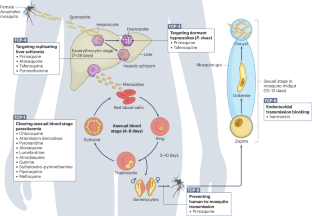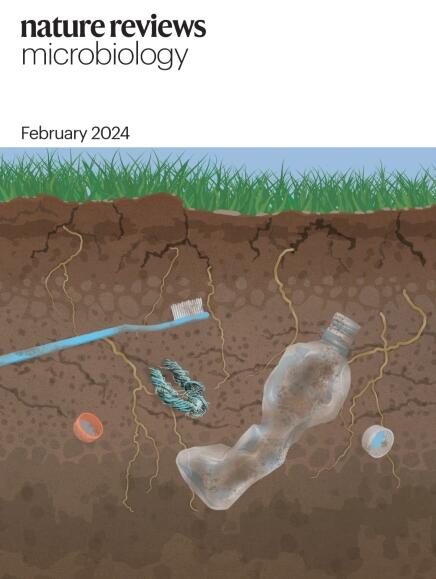Towards next-generation treatment options to combat Plasmodium falciparum malaria
IF 69.2
1区 生物学
Q1 MICROBIOLOGY
引用次数: 0
Abstract
Malaria, which is caused by infection of red blood cells with Plasmodium parasites, can be fatal in non-immune individuals if left untreated. The recent approval of the pre-erythrocytic vaccines RTS, S/AS01 and R21/Matrix-M has ushered in hope of substantial reductions in mortality rates, especially when combined with other existing interventions. However, the efficacy of these vaccines is partial, and chemotherapy remains central to malaria treatment and control. For many antimalarial drugs, clinical efficacy has been compromised by the emergence of drug-resistant Plasmodium falciparum strains. Therefore, there is an urgent need for new antimalarial medicines to complement the existing first-line artemisinin-based combination therapies. In this Review, we discuss various opportunities to expand the present malaria treatment space, appraise the current antimalarial drug development pipeline and highlight examples of promising targets. We also discuss other approaches to circumvent antimalarial resistance and how potency against drug-resistant parasites could be retained. In this Review, Okombo and Fidock discuss the current antimalarial drug development pipeline and highlight examples of new, promising targets. They also explore different approaches to circumvent antimalarial resistance and how potency against drug-resistant parasites could be retained.


开发抗击恶性疟原虫疟疾的新一代治疗方案
疟疾是由疟原虫感染红细胞引起的,如果不及时治疗,非免疫个体可能会死亡。最近批准的红细胞前疫苗 RTS、S/AS01 和 R21/Matrix-M 带来了大幅降低死亡率的希望,尤其是在与其他现有干预措施相结合的情况下。然而,这些疫苗的疗效有限,化疗仍是疟疾治疗和控制的核心。由于恶性疟原虫抗药性菌株的出现,许多抗疟疾药物的临床疗效受到影响。因此,迫切需要新的抗疟药物来补充现有的一线青蒿素类复方疗法。在本《综述》中,我们讨论了拓展现有疟疾治疗空间的各种机会,评估了目前的抗疟药物开发管线,并重点举例说明了有前景的靶点。我们还讨论了规避抗疟药物抗药性的其他方法,以及如何保持对抗药性寄生虫的效力。
本文章由计算机程序翻译,如有差异,请以英文原文为准。
求助全文
约1分钟内获得全文
求助全文
来源期刊

Nature Reviews Microbiology
生物-微生物学
CiteScore
74.00
自引率
0.50%
发文量
149
审稿时长
6-12 weeks
期刊介绍:
At Nature Reviews Microbiology, our goal is to become the leading source of reviews and commentaries for the scientific community we cater to. We are dedicated to publishing articles that are not only authoritative but also easily accessible, supplementing them with clear and concise figures, tables, and other visual aids. Our objective is to offer an unparalleled service to authors, referees, and readers, and we continuously strive to maximize the usefulness and impact of each article we publish. With a focus on Reviews, Perspectives, and Comments spanning the entire field of microbiology, our wide scope ensures that the work we feature reaches the widest possible audience.
 求助内容:
求助内容: 应助结果提醒方式:
应助结果提醒方式:


